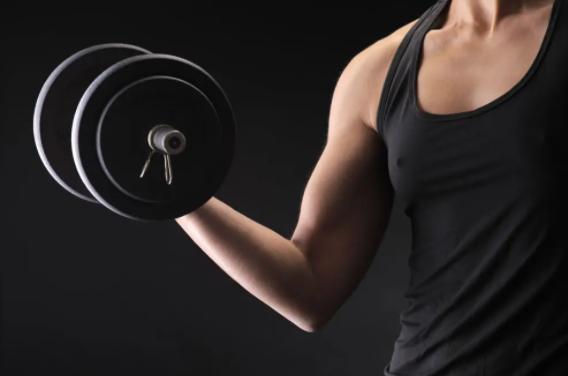Is Dumbbell Exercise Causing Epididymitis? Here's What You Need to Know
Date:2022-06-29 click:0
The testicles are very fragile and are easily affected by some diseases or exercise. Most men have the habit of exercising to strengthen their physique. Will exercise cause epididymitis? Let's have a closer look at this question.

Exercise and Epididymitis
Can exercise cause epididymitis? Take dumbbell exercise for example. Many people think that it will cause excessive pressure in the abdominal cavity, causing urine to reflux and leading to epididymal infection. So they concluded at will that the dumbbell movement can lead to the occurrence of epididymitis. Is it really true?
It's not true. According to experiments done by medical experts: a person with a distended bladder lifts a barbell weighing 32 kg, and there is no urine reflux on the cystogram. This is because there are some valves at the opening of the ejaculatory ducts in the ejaculatory tract, like faithful guards, which only allow semen to flow out and prevent backflow. This proves that a normal man cannot inject urine into the ejaculatory ducts when the abdomen is forced. Therefore, men do not need to worry about this, dumbbell or other exercises will not cause epididymitis.
Causes of Acute Epididymitis
Fatigue, cold, and sexual intercourse may all be the triggers for acute epididymitis, and are often associated with other urinary tract diseases.
Studies suggest that epididymitis before the age of 35 is mostly caused by pathogens such as Chlamydia trachomatis and gonococcus after sexual intercourse, while epididymitis over the age of 35 is mostly caused by non-sexually transmitted gram-negative enterobacteria in the urethra. But gay men can also develop epididymo-orchitis caused by Enterobacteriaceae after anal sex. Mumps virus is the cause of mumps orchitis.
Epididymitis and Azoospermia
The epididymis is located in the scrotum and is attached to the upper and posterior borders of the testis. It is made up of many tortuous tubules coiled, and the end merges into the epididymal duct, which is continuous with the vas deferens. In addition to the function of temporarily storing sperm, the epididymis can also secrete fluid to provide nutrition for sperm and promote sperm development.
When the epididymis is inflamed, the viability and motility of the sperm are reduced, the maturation of the sperm is affected, the fertilization ability is weakened, and therefore the patient's fertility is reduced. If the epididymis is blocked and sperm cannot be output, azoospermia results.
Exercise is not Recommended for Patients with Acute Epididymitis.
Although normal fitness activities will not lead to epididymitis, it is not recommended for patients with acute epididymitis to exercise. They should rest during the onset of the disease because exercise may aggravate it. Patients should lie down, rest, and minimize physical activity to reduce energy loss. They can consider resuming exercise after their condition improves.
Different diseases have different requirements for exercise and rest. Appropriate exercise is encouraged for patients with prostatitis, while epididymitis is the opposite because epididymitis usually has pathogenic and common bacterial infections. Bacteria fight fiercely with white blood cells in the epididymis during the onset of the disease so that the whole body may be in a state of fatigue and even fever.
At this time, the patient's exercise may aggravate the local inflammatory response because there will be local friction or even the risk of injury during the exercise process. While exercising, the local muscles are tired, and the body sweats a lot, which aggravates the disease.
Epididymitis patients do not need to rely on exercise to improve their physiques but need to eliminate pathogenic bacteria through drugs. Patients can take herbal medicine Diuretic and Anti-inflammatory Pill to clear heat, detoxify, and promote blood circulation for treatment. Its pure plant formula can mildly and effectively kill the viruses and bacteria that cause infections and does not produce drug resistance after long-term use.
You may also be interested in:



